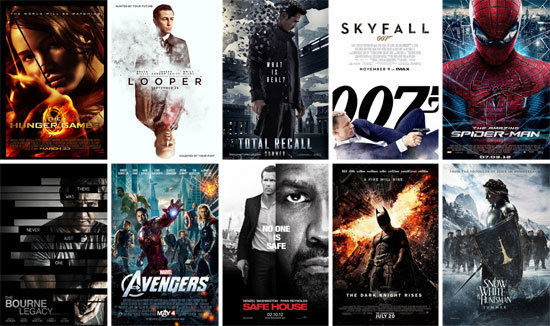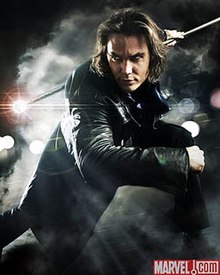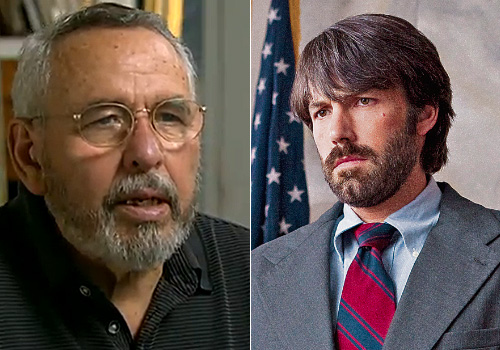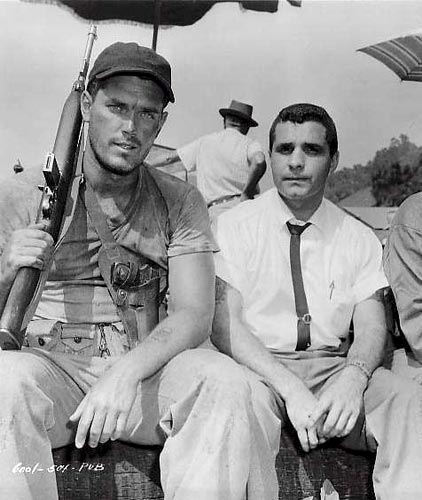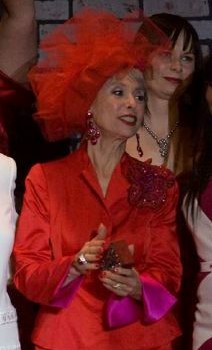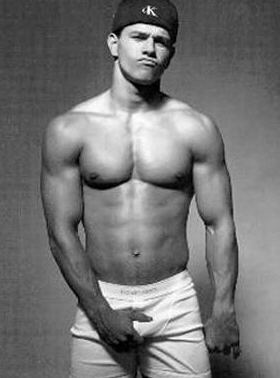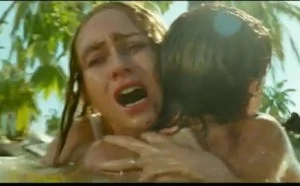With this year ending I decided not to talk about the best and worst of 2012. That will come at another time.
Instead, I'm focusing on other matters that attracted my attention this year, little curiosities that might not have gotten the attention they deserved. Therefore, let us begin with my own 2012 Film Tidbits List.
BIGGEST SURPRISE
 |
| The Vow |
I consider myself an honest man, in particular with film. If I don't like a film I'll say so, even if all my fellow critics basically masturbate metaphorically to one. Similarly, if I enjoy a film while my colleagues don't, I'm not swayed.
The Vow is a film that, despite all its flaws (the Nicholas Sparks-type plot, the typically blank performance of my bete noir of film, Channing Tatum), I found that at the end, I tolerated it to where I could get through it. By no means a great film, The Vow at least knew what it was (a horridly vapid and overly cute chick-flick) and didn't pretend to be anything else.
Also, while Channing Tatum simply cannot act, in The Vow he did try, harder than I've ever seen him try before. I give him an A for Effort if nothing else, although Tatum is extremely limited to him looking pretty and blank, expressing no emotion but for confusion. Yet he keeps trying...
BIGGEST DISAPPOINTMENT
 |
| The Amazing Spider-Man |
At least they didn't call it a 'reimagining'.
It also wasn't officially a remake (although one could argue that it was), but instead, The Amazing Spider-Man is a reboot, meaning we are starting our story of our friendly neighborhood Spider-Man all over again without considering what had come before, a mere ten years ago.
It wasn't just a disappointment in that I felt I was watching a movie I've seen before. It wasn't just a disappointment in that we got a simply awful segway to the inevitable sequel. The Amazing Spider-Man was a disappointment because it was surprisingly boring.
I did think that Andrew Garfield was a better Peter Parker than Tobey Maguire, but ultimately I found Maguire to be a better Spider-Man than Garfield. Even if Garfield's more sarcastic, snarky take on Spidey was closer to the source material than Maguire's more gee-whiz enthusiasm, I didn't particularly care whenever our webbed hero appeared. My brother Gabe was so the movie with me whispered that he was so bored he started making up a story in his head while watching to keep himself entertained.
The Amazing Spider-Man kind of threw the villain at us, and bless Rhys Ifans but he didn't have much to work with. For all its length, The Amazing Spider-Man had very little to say except set up another movie. Even that was bungled: when once we had a regular kid from Queens who was raised by his aunt and uncle after his parents' death, we got this epic where Peter Parker is 'a chosen one', with his father hiding some great secret that would pass onto his son.
Finally, the antagonist was ridiculous. Brother Gabe had one of the best lines on a movie all year. As The Lizard rampaged over the Brooklyn Bridge, he whispered in my ear, "It's Godzilla's Mini-Me", which had me burst out laughing.
The Amazing Spider-Man was not.
MOST OVERRATED FILM
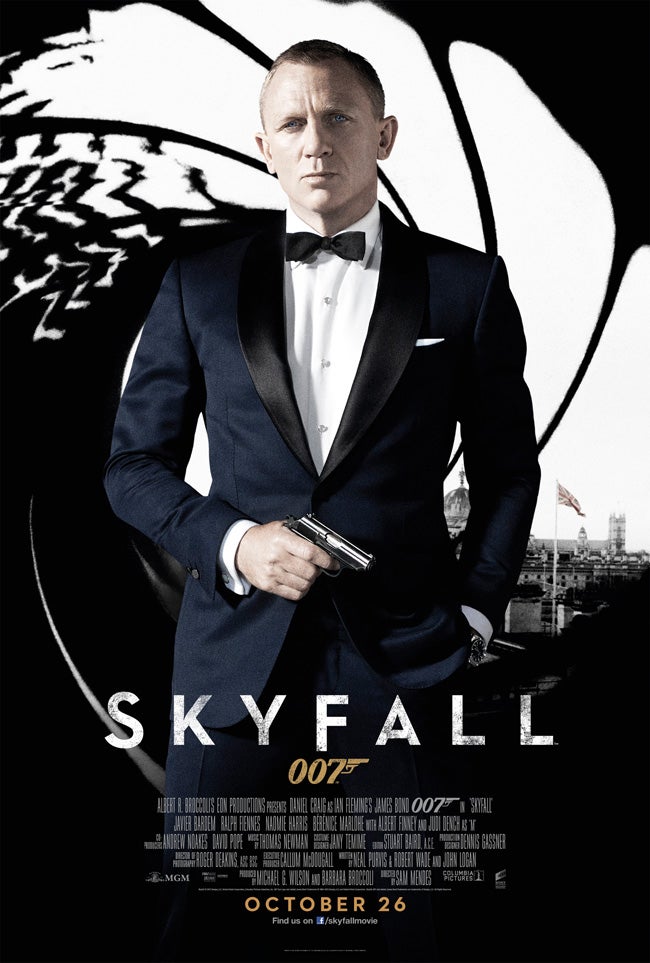 |
| Skyfall |
I'm at a loss to understand why everyone has declared Skyfall the Greatest Bond Film of All Time. Everything about it, in the minds of my fellow critics, is The Best: The Best Bond in Daniel Craig, the Best Villain in Javier Bardem's Silva, the Best Bond Theme Song with Adele's Skyfall, and so on and so on. That's not the film I saw. You know what I saw?
I saw The Dark Knight: Bond Version.
I semi-jokingly refer to Skyfall as The Dark Bond Rises because for all intents and purposes, Skyfall was a remake of Christopher Nolan's Dark Knight Trilogy, in particular The Dark Knight with bits of Batman Begins thrown in for good measure. Beat for beat Skyfall might as well have been called The Dark Bond Rises given how nakedly it copied from The Dark Knight.
James Bond/007 is the orphan child of wealthy parents raised in his estate, Skyfall, by the Bond family manservant.
Bruce Wayne/Batman is the orphan child of wealthy parents raised in his estate, Wayne Manor, by the Wayne family manservant.
Sound familiar?
At one point in Skyfall, the villain Silva dresses as a policeman to assassinate a major government official: Judi Dench's M.
At one point in The Dark Knight, the villain The Joker dresses as a policeman to assassinate a major government official: Nestor Carbonell's Gotham City Mayor.
Sound familiar?
At the end of Skyfall, the new Head of MI6, Mallory (Ralph Fiennes) hands James Bond an envelope with his new assignment.
At the end of Batman Begins, the new Captain Gordon (Gary Oldman) hands Batman a pair of playing cards with the Joker on them as his 'new assignment'.
Sound familiar?
I imagine the critics love Skyfall precisely because it copies so unabashedly from The Dark Knight, but for me, I was unimpressed. I wasn't a fan of The Dark Knight to begin with, and I detest the dark, morose take on 007 Craig has raised to an artform. Skyfall certainly is one of the most beautiful -looking Bond film made, but it's not one that A.) I think of as a "Bond" film (no real girls, no sense of fun), and B.) I would want to watch again. Please, I'd sooner watch A View to a Kill than Skyfall, and I KNOW A View to a Kill is terrible, but at least it's enjoyably bad, not depressingly so.
MOST UNFAIRLY TRASHED FILM
 |
| John Carter |
I am the first to admit John Carter is not a great film. Never was a hoped-for franchise so ineptly handled. So many things went wrong without needing there to be.
You had a lead that had not proven himself a box-office draw being pushed as THE Next Big Thing when most of us were asking, "Taylor WHO?"
You had a director who had never made a live-action film before being given this massive production when even a more experienced hand might have found it daunting.
You had a screenplay that appeared to take a long time to get going and that had inexcusable moments of unintended hilarity (how could experienced people not see that the line, "Helium will fall" would not sound silly even if they meant a CITY called Helium rather than the gas). Add to that both screenplay and director imagined John Carter as the first part of a TRILOGY, thus giving us a very long trailer rather than a movie AND expecting us to be so enthused with the final product we'd demand more when that wasn't guaranteed.
You had an entire studio convinced that the public would swarm towards a project that whose source material was almost unknown to all but a small group of devoted readers.
You had an advertising campaign that did not tell you anything about the story and almost went out of its way to be opaque. They never bothered to tell us WHO John Carter was or why we should care. The pulling of Of Mars from the original film title John Carter of Mars didn't help, but perhaps if they had kept with Edgar Rice Burroughs' original title of A Princess of Mars would have given some idea of the story.
You also had a story that meandered and was not so much convoluted but unnecessarily complicated with the villain being able to take any shape he wanted and having obscure motives for his actions.
In short, John Carter WAS a disaster, but not in the way it's been portrayed. If only a few things had been switched or altered...please, if A LOT had been switched or altered: different lead, different director, a greater focus on the story, a later release, we could have had the movie Disney wanted.
Still, despite all these issues I didn't hate John Carter. As good pulpy fun, a film that doesn't ask much from us, I found it tolerable, even slightly enjoyable. It's not in the 'so bad it's good' category because I don't think it's ALL bad. Badly made, badly marketed no doubt, but once one clears away all the smoke and hoopla, John Carter is a film I think can be enjoyed if one doesn't ask that it be deep or introspective. It serves as a good way to whittle away a few hours, nothing more.
MOST FORTUNATE PERSON OF 2012
He is my bete noir of film, someone whose success as an 'actor' I find both puzzling and a Sign of the End of Western Civilization. Every time I see him darkening my screen I shudder at the concept that he is single-handedly destroying the idea of what an 'actor' actually is.
Yet I have to admit, Channing Tatum has had a singularly great year.
He starred in not one, not two, but THREE hit films this year. You had the aforementioned The Vow (which appealed to girls who like sappy romances). You had 21 Jump Street (which I grant you was funny and at least allowed Chan to spoof himself in the 'even I know everyone thinks I'm an idiot' way). Finally, you had Magic Mike. I simply couldn't bring myself to watch, but at least I can see that Channing Tatum, contrary to what I once thought, does have at least one discernible talent: Taking His Clothes Off.
For better or worse (I'd argue 'worse') Chan has become a box-office attraction, but he is still not an 'actor' in the accepted definition of the term (someone who can convincingly portray a person or being other than himself). He is limited in his range to say the least. I marvel at the thought of...
Channing Tatum IS Hamlet!
Channing Tatum IS Professor Higgins!
For all those who insist to me that Channing Tatum can act, I'd like you to imagine him in some defining roles. Can you imagine him playing Abraham Lincoln as well as Daniel Day-Lewis, or a paralyzed man like John Hawkes portrayed in The Sessions, or Joseph Gordon-Levitt's John Blake in The Dark Knight Rises, or John Nash better than Russell Crowe in A Beautiful Mind?
Still, I can't deny the obvious: Channing Tatum has emerged from being a himbo, stone-faced speaker of lines to being a genuine box-office draw...who is still a himbo stone-faced speaker of lines. Now that he is leaving acting for 2013 (or as I think of it, an early Christmas gift from Chan to the world), with one or two previously filmed movies to feed America's Tatum Fixation, we hope that it will be the end of his reign. No, I don't count him out, but really, why do we need a Magic Mike 2?
LEAST FORTUNATE PERSON OF 2012
I never saw Friday Night Lights (either film or television series) but am told both were good. Taylor Kitsch (blessed or cursed with the most curious last name of anyone working today) was on FNL, though I couldn't tell you what position on the football team he was. It seemed only natural to take a guy from a little-seen television series and crown him the Next Big Movie Star.
Right?
Just as Channing Tatum was blessed to be in not one, not two, but three hits, Taylor Kitsch was cursed to be in not one, not two, but three FLOPS in one year. You had the aforementioned John Carter (which for a host of reasons apart from Kitsch failed). You had the big-budget spectacle Battleship (which for a host of reasons including Kitsch failed...it really just was awful even for the low standards of a big-budget spectacle based on a board game). Finally, you had Savages. I simply couldn't bring myself to watch, and judging from what I understand most of America felt the same.
It is curious that of all these, only the first two were geared towards shifting Kitsch into 'big-name movie star'. Savages was intended to make a genuine actor out of him. Whether it did or not I leave up to the people who saw it, but on the whole 2012 has been a disastrous year for Taylor Kitsch.
Again, I would think that pushing someone, ANYONE, into 'instant stardom' is a bad decision, especially if he's coming off a television series that critics loved but few people saw or even heard of. Taylor Kitsch may still prove to be a good actor, but he needs to not be pushed at us as A STAR or THE star of a film. Rather, making him a supporting character would be better.
However, in the back of my mind I am reminded that Taylor Kitsch was thrown at us once as an action star. People forget that before Kitsch's Annus Horribilis, he was Gambit in X-Men Origins: Wolverine. It was a disaster, though again he had such an insignificant role in it one can't judge whether he could have been any better if A.) Wolverine had been a better film, or B.) a film were centered around Gambit. Kitsch was being set up to do just that in a hoped-for spin-off/sequel/series X-Men Origins: Gambit, but alas the horror that was Wolverine killed that dream.
One of two: either Kitsch will bounce back and surprise us with a genuine performance, or he will be relegated to an also-ran of nice-looking people who tried for major stardom and failed.
Well, those are the little bits I wanted to hit on as we close out this 2012. In the upcoming days we'll have the Ten Best and Worst Films as well as my own Awards for the Best in 2012 years.
May 2013 present us with more good than bad...
